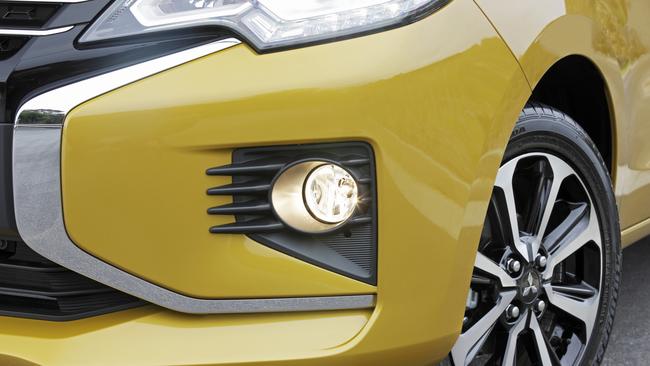Car dealers wrestle slump in sales
Car dealers are flooding the market with demo vehicles in an effort to meet ‘aggressive’ sales targets and secure rebates.

Car dealers are flooding the market with demo vehicles in an effort to meet “aggressive” sales targets and secure lucrative rebates from manufacturers, as new car sales slump to a decade low and are forecast to worsen amid the coronavirus pandemic.
Since the beginning of March, the number of cars listed for sale on Australia’s No 1 auto classified website, Carsales, has surged 15 per cent to 225,000. Demo cars have made up the bulk of the increase, almost doubling to more than 30,000.
The rise in demo sales come four months after an overhaul of Australia’s VFACTs car sales data, which now requires a car to be registered before it can be counted as sold.
Since demos must be registered, they can be technically counted as a car sale, despite driving no further than off the back of a truck and into a dealership.
Demos, which have traditionally been used for test driving, are attractive to consumers since they can potentially save thousands of dollars compared with buying a new car.
The brand with the highest number of demos for sale was Mitsubishi, with more than 2800, followed by Mazda with 2500, and Volkswagen with 2400.
Meanwhile Holden, which parent company General Motors will retire by late next year, listed around 1100 demos for sale, and Australia’s top selling auto brand, Toyota, had about 690 demos for sale.
Australian Automotive Dealer Association (AADA) chief executive James Voortman said he was concerned some manufacturers may be forcing dealers to take on more stock than they could sell.
“VFACTs considers a registered demonstrator as a new car sale, so there is a perverse incentive for some manufacturers to boost their published market share by strongarming their dealers into taking on a high number of demonstrators,” Mr Voortman told The Australian.
“I would hope that the high amount of demos is not a reflection of manufacturer’s overly aggressive sales targets for dealers. I would also hope that these demos are not leading to a situation in which dealers are significantly overstocked.
“Purposely overstocking dealers during this very difficult time is extremely unethical.”
Mr Voortman welcomed the overhaul of VFACT’s data, which took effect at the start of this year and is compiled by the Federal Chamber of Automotive Industries (FCAI).
But he said more work needed to be done to strengthen the credibility of new car sales figures and secure a more accurate picture of the industry.
“Requiring a vehicle to be registered before it is sold is an important step, but it is only a first step and the whole industry should be working together to ensure that cars are only reported as sold when a genuine customer takes delivery of the car.
“It’s an open secret in the industry that a number of major manufacturers set incredibly aggressive sales targets, placing immense pressure on their dealers to achieve these targets by reporting cars as sold, despite there being no end customer,” he said.
“These practices … undermine the credibility of new car sales numbers reported through the VFACTs product, which is used by investors, economists and the government in assessing the health of the industry and the broader economy and then making key decisions off the back of that information.”
The latest VFACTs data showed new cars slumped 17.9 per cent in March, compared to the same time in 2019, with 81,690 vehicles sold. It was the 24th consecutive month of negative car sales and the steepest drop in more than decade. The dive came as the government introduced strict restrictions on public movement to limit the spread of COVID-19. Dealers are now anticipating a drop in sales of about 60 per cent in April. Some are even bracing themselves for a fall of as much as 90 per cent, threatening the viability of many auto businesses.
Even before the pandemic, dealers have been under significant pressure. A Deloitte report, commission by AADA, found before the COVID-19 outbreak 36 per cent of Australian dealers were operating at a loss. Meanwhile dealer profitability dived from 2.2 per cent in 2015 to 0.9 per cent last year.
Mr Voortman called on the government to support car dealerships to ensure they can continue to employ people and service their local communities.
“The impact of the coronavirus will push some dealers over the edge. Unfortunately dealers don’t qualify for many of the stimulus packages because of their high turnover and staff levels. Governments need to understand that new car dealers operate on very low margins and turnover alone is not a metric that can be used to determine their survivability in such adverse trading conditions.”
FCAI chief executive Tony Weber said numerous car dealerships around Australia remained open, despite the difficult trading conditions.
“Many dealerships have opted to remain open to maintain support for customers, particularly from a service perspective, during this difficult period,” Mr Weber said.
“Of particular importance are first responder and essential services vehicles. We must keep these vehicles on the road to ensure our communities continue to function and remain safe.
“In addition, we need to ensure those who physically attend their workplace can travel safely. The motor vehicle is a safe form of transport during the pandemic, allowing occupants to preserve their personal distance from other commuters.”



